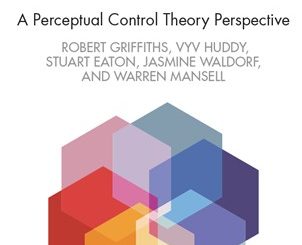Materials describing various applications of PCT, ordered in themes

Computational Models
Quick links on Computational Models:
Materials describing various applications of PCT, ordered in themes

Quick links on Computational Models:

At present the application of PCT to Religion is also at its early stages. One exception is Lynndal Daniels’ blog on PCT and Buddhism, which links the Method of Levels, a psychotherapy that is a direct application of Perceptual […]

Perceptual Control Theory is taught at the University of Manchester as a component of the Psychology degree. In a student group research project, we have analysed the facilitaors and obstacles to learning PCT – click here for […]

Warren Mansell

Warren Mansell

R. Young and J. Illingworth

Moore, Roger K. (2007)

Richard Kennaway

Roger K. Moore, Mauro Nicolao

Robert Griffiths, Vyv Huddy, Stuart Eaton, Jasmine Waldorf, Warren Mansell ABSTRACT This book considers how principles derived from a theory of human behaviour – Perceptual Control Theory – can be configured to create mental health […]

Warren Mansell, University of Manchester, UK (2011)

William T. Powers

Richard S. Marken This paper describes a first step a building a working, closed-loop model of the macro economy.

Angelo J. KinickiKathryn J. L. JacobsonBenjamin M. GalvinGregory E. Prussia AbstractThis study uses a control theory to develop a multilevel systems model of leadership. The model outlines the processes that senior leaders can use to […]


Background Since 2021, we have been working on the development of an accreditation procedure for Method of Levels practitioners. Our objective is to shape the procedure according to Perceptual Control Theory (PCT) principles and provide […]

Samuel Bagno ©1955 IRE (now IEEE). Reprinted, with permission, from IRE Convention Record, 1955 Part 4 “Computers, Information Theory, Automatic Control.This material is posted here with permission of the IEEE. Internal or personal use of […]

William T. Powers

Warren Mansell

Warren Mansell First published: 17 March 2011 https://doi.org/10.1111/j.1756-8765.2011.01140.x https://onlinelibrary.wiley.com/doi/full/10.1111/j.1756-8765.2011.01140.x

Franz Mechsner, Dirk Kerzel, Günther Knoblich & Wolfgang Prinz Mechsner, F., Kerzel, D., Knoblich, G. et al. Perceptual basis of bimanual coordination. Nature 414, 69–73 (2001). https://doi.org/10.1038/35102060 https://www.nature.com/articles/35102060

Warren Mansell When people feel like they aren’t in control of their lives, or they become too controlling, this can cause psychological problems. ASK expert in Perceptual Control Theory, Dr Warren Mansell, why finding the […]

Lydia Morrisa, Karina Lovellb, Phil McEvoyc, Richard Emsleyd, Lesley-Anne Cartere, Dawn Edgea, Rachel Batesc, Tanya Wallworkc and Warren Mansel In an RCT, the Take Control Course for up to 20 adults (transdiagnostic & based on […]

Marc Schwartz and Philip M. Sadler http://www.project2061.org/events/meetings/technology/tech2/schwartz-sadler.htm
Copyright © 2022 iapct.org